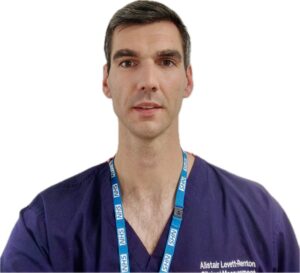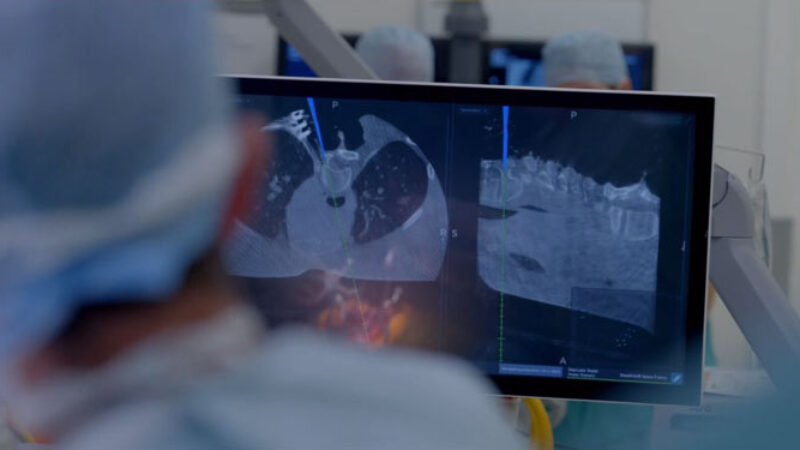
Alistair Levett-Renton is a Principal Clinical Scientist performing and interpreting/reporting advanced physiological measurements during patient’s procedures at South Tees Hospital NHS Foundation Trust.
Alistair recently completed the nine month intraoperative neuromonitoring (IONM) course – run in collaboration with US educator, the Center for Electroneurodiagnostics (CEN).
Completion of the course has culminated in a Certificate of Intraoperative Neurophysiologic Monitoring with a focus on Spinal Deformity.
We caught up with Alistair to see how he found the overall experience.
How did you find the IONM course curriculum?
The course curriculum had good structure with an easy to digest introduction and background into IONM.
You could work through the content at your own pace and it was easy to follow, taking you through neuro anatomy and physiology as well as the application of equipment and safe theatre practice.
It also focuses on understanding the range of IONM modalities, how to perform them and the different types of surgeries these can be applied to.
Was there any aspect of the training that you particularly enjoyed or got a lot from?
I enjoyed understanding the diversity of opportunities in IONM and how they could be applied within neuro and other surgical specialities.
For example, I can see how IONM could be utilised during abdominal aortic aneurysm (AAA) or cardiothoracic interventions.
As IONM practitioners we can help reduce risks of motor/sensory loss during such advanced procedures.
How did you find the support during the training?
Rose the education lead at CEN was fantastic. She always responded to emails giving advice and support despite being in a different time zone!
She was able to explain concepts and the application of IONM modalities within the clinical field at an easy to understand level.
During the practical aspect of the course I found it useful to work alongside like minded practitioners at the Newcastle Hospitals.
We gained a lot of new skills, knowledge and understanding together along the way which can only strengthen our profession going forward.
What benefits have you seen since undertaking the training?
Having independently performed for over a year now I am already a competent IONM practitioner, however I found this course has helped improve and enhance my own and our local practice in the department.
For example, we recently procured new IONM equipment and now find we feel confident to utilise new techniques learnt on the course alongside the equipment upgrade.
Would you recommend the course?
Yes. I’d recommend it for anyone interested in getting into IONM, or if you’re already practicing, it will definitely increase your knowledge.
IONM is an ever evolving profession, there’s always something new to learn.
Find out more about our Intraoperative Neuromonitoring course here